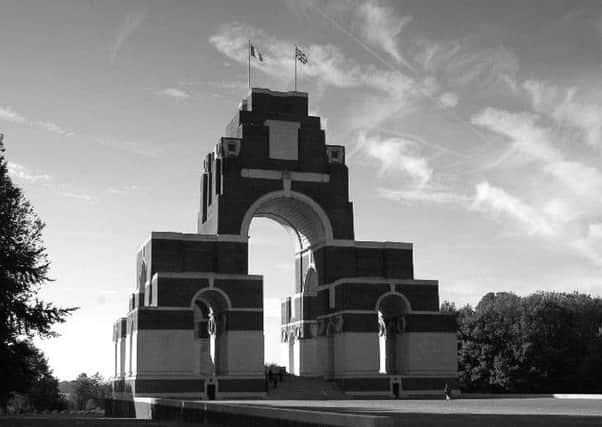Nitten man is one of the oldest killed at the Somme


Many units saw action time and time again and as result sustained heavy casualties.
One such unit was the 10/11th Highland Light Infantry. It put out a call for replacements and in early September many local men from the 3/8th Royal Scots volunteer for overseas service with the 10/11th, most of them are miners, and a number of them are well over the normal age for active military service.
Advertisement
Hide AdAdvertisement
Hide AdAlex Meek was one such man, at 54 years old, a grandfather and father of five. He decided that training soldiers was not enough for him; he wanted to take the fight to the Germans.
Somehow he managed to pull a few strings and was transferred to the 10th/11th Highland Infantry of the 15th (Scottish) Division and went to France in September 1916 serving with the rank of Private.
The Meeks were a patriotic family. Robert was in the Royal Warwickshire Regiment, Charles was a Royal Engineer, John was in France with the 1/8th Royal Scots and a son-in-law David Hill, a former policeman in Newtongrange, was serving with the Cameron Highlanders.
Later in the war Robert would be badly wounded and awarded the Military Medal whilst serving with the Machine Gun Corps, his brother John was also awarded the Military Medal for rescuing an injured comrade.
Advertisement
Hide AdAdvertisement
Hide AdAlex was sent directly to the front, and pitched straight into the front line trenches. Alongside him were his neighbours Pte Robert Barton, and L Cpl John Goodall, all from Abbeylands, Newtongrange, who worked together at Newbattle Colliery.
They learned that they were to take part in an attack on the Flers-Courcelette area and start work immediately on preparing the trench for the attack.
For two days they work around the clock, often under shellfire, but on September 14 they receive word that they will go over the top at 6.20am the following morning.
During the night there is a scare. Explosions can be heard in parts of the trench line. The Germans are raiding with hand grenades. After a short firefight they are repulsed. The men settle down for a very uneasy rest. They are desperately tired.
Advertisement
Hide AdAdvertisement
Hide AdThe 15th Scottish Division is tasked with capturing the village of Martinpuich. It would be a tough nut to crack, but for the first time in warfare, the Infantry will be accompanied by a new and top secret weapon, the tank. About 5.50am a rumbling squeaking noise is heard behind the trench.
Despite the danger, many men poke their head up to see what it is. They are greeted by the sight of a tank slowly rumbling towards them at 1mph.
It is so slow that it doesn’t reach their position before the off. However, its effect on the Germans’ morale is devastating.
At the whistle blast men from 46th Brigade went over the top – the 10th Scottish Rifles, 7th & 8th Kings Own Scottish Borderers, 10/11th Highland Light Infantry and 12th Highland Light Infantry advancing at a pace of 50 yards a minute behind the artillery.
Advertisement
Hide AdAdvertisement
Hide AdThe advancing troops come under machine gun fire from an unseen position. However, the tank which has now caught up, opens up with its machine guns, causing the terror struck Germans to surrender.
The first line trench is seized and cleared up. Many of its occupants are stunned and shocked.
Regrouping, the HLI press on with the attack on the Second Line trench and here more opposition is encountered. All the officers leading the attack are killed or wounded and command falls to the Non-Commissioned Officers. The attack is a success and troops pour forward to take the captured trenches. However, the Germans respond with a vicious artillery counter-attack catching many men in the open at the Sunken Road.
Alex Meek was one of those men. As he advanced, he and his work mate from the pit, 36-year-old Robert Barton were hit by a shell.
Advertisement
Hide AdAdvertisement
Hide AdThey simply disappeared. When the smoke lifts, stretcher bearers rush to a screaming man. It is John Goodall who has lost a leg in the explosion.
The village was taken but other objectives were not. British and New Zealand casualties were over 29,000.
The war diary of the HLI recorded that casualties were light considering the objective and gains made.
Alexander Meek and Robert Barton have no known grave.
They are commemorated on the mighty Thiepval Memorial and indeed Alex Meek may be one of, if not the oldest men on the memorial.